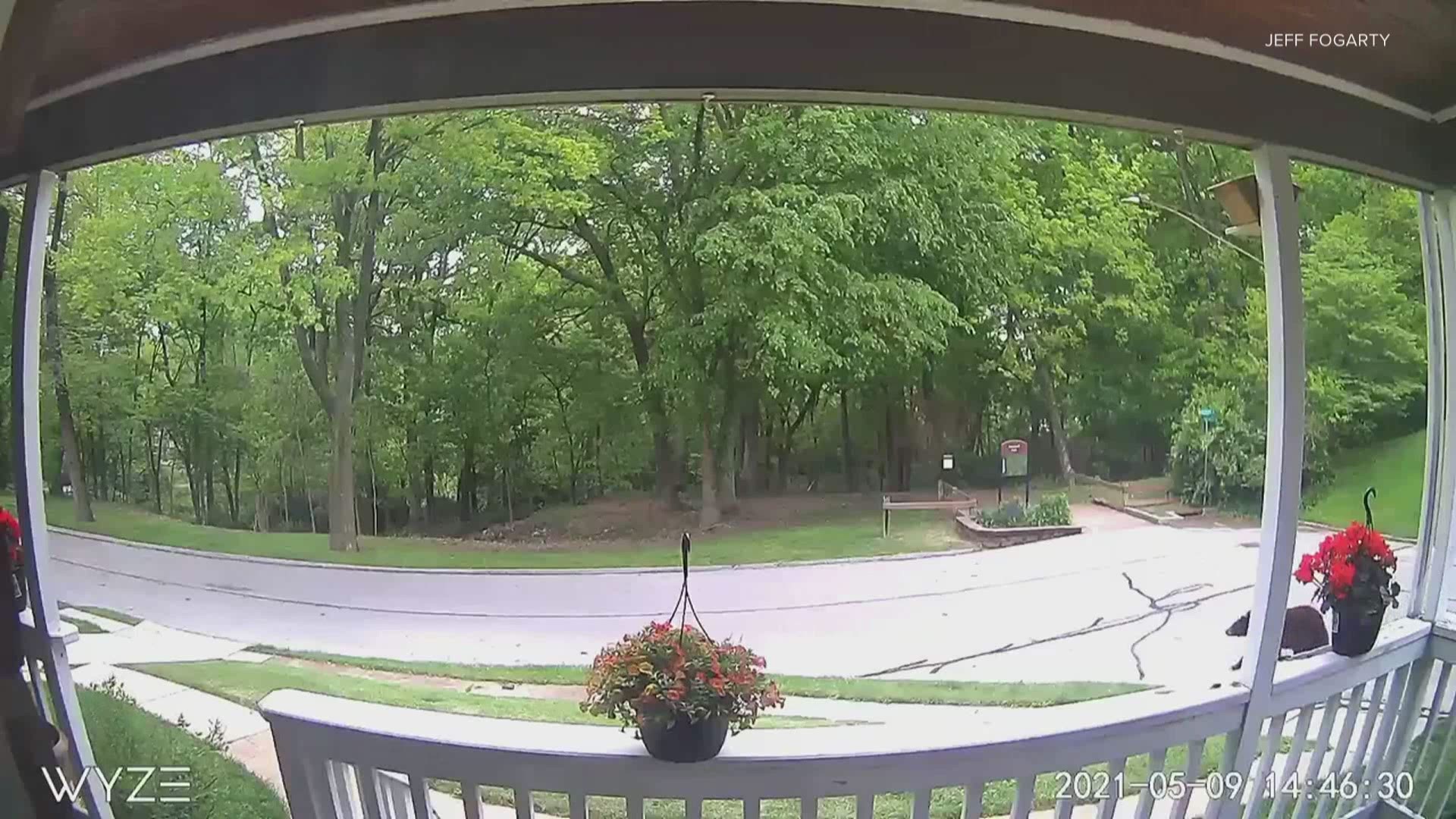ST. LOUIS — The Missouri Department of Conservation said it has received several reports of recent bear sightings in the St. Louis area.
Sightings have been reported in Fenton as well as in Jefferson, Franklin and Crawford counties. The department said the sightings are a reminder that black bears are becoming a growing part of the St. Louis regional landscape.
So, why the increase in sightings lately? The department’s research indicates Missouri is home to about 800 black bears and that population is growing by 9% each year.
“Most of our bears are found in the southern part of the state. That’s where we have the largest tracts of forested habitat,” said Tom Meister, wildlife damage control biologist for MDC’s St. Louis region.
The research shows the population is expanding in numbers and range, the conservation department reported. As the population grows and expands, bears are showing up in areas further north. Late spring/early summer is also the prime time for bears to be on the move.
MDC said the recent uptick in sightings locally is likely a combination of bear range expanding and the time of year when bears can move large distances.
The MDC map below shows reported bear sightings in 2019:
The increase in bears means an increased potential of human-bear interactions. MDC said while generally not aggressive, black bears are driven to find food, like any wild animal. It takes a lot of calories to fuel a bear, which can weigh several hundred pounds, and they are attracted to a variety of food this time of year.
“The bears have been out of hibernation since spring. Now, they’re hungry. They were dormant for all winter, and they’re looking for food. So, we don’t want to tempt them,” Meister said.
MDC said food, or lack of it, is the key to avoiding conflicts with bears.
The department said not to offer them food. Intentionally feeding bears can be dangerous as it makes them comfortable around people. It can also lead bears to cause significant damage to property while searching for a meal.
MDC said a bear that becomes accustomed to getting food from humans could result in an increased number of encounters, property damage, bold behavior and ultimately the euthanizing of the bear.
The department said those types of situations can be prevented by ensuring bears don’t have access to easy foods.
MDC's tips on how to avoid issues if a bear has been sighted in the area:
- Store garbage, recyclables and compost inside a secure building or in a bear-proof container or location.
- Regularly clean and disinfect trash containers to minimize smells that could attract bears.
- Keep grills and smokers clean and store them inside.
- Don’t leave pet food outside. Feed pets a portion at each meal and remove the empty containers.
- Refrain from using birdfeeders in bear country from April through November. If in use, hang them at least 10 feet high and 4 feet away from any structure. Keep in mind that even if a bear cannot get to the birdseed, the scent could still attract it to the area.
- Use electric fencing to keep bears away from beehives, chicken coops, vegetable gardens, orchards and other potential food sources.
MDC tips to stay safe when outdoors in bear country:
- Never deliberately offer a bear food!
- Keep campsites clean and store all food, toiletries and trash in a secure vehicle or strung high between two trees.
- Do not keep food or toiletries in a tent, and do not burn or bury garbage or food waste.
- Make noise, such as clapping, singing or talking loudly, while hiking to prevent surprising a bear.
- Travel in a group if possible.
- Keep dogs leashed.
- Be aware of surroundings. If there are signs of a bear, such as tracks or scat, avoid the area.
- Leave bears alone! Do not approach them, and make sure they have an escape route.
For more information on black bears, visit the Missouri Department of Conservation website.
To report a bear sighting, click here.

